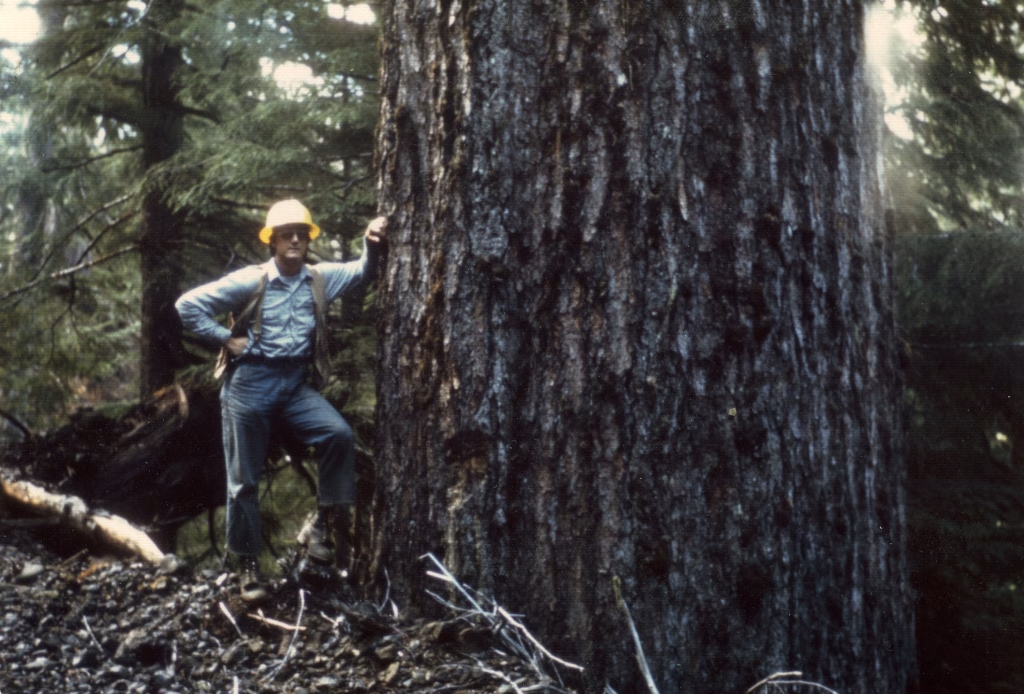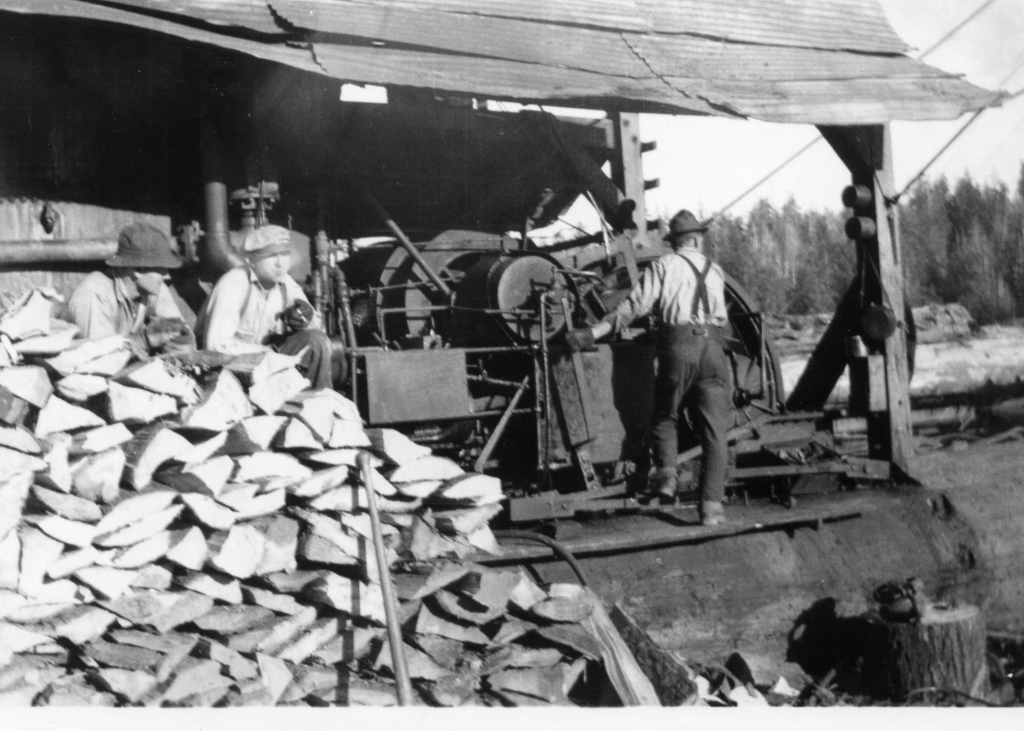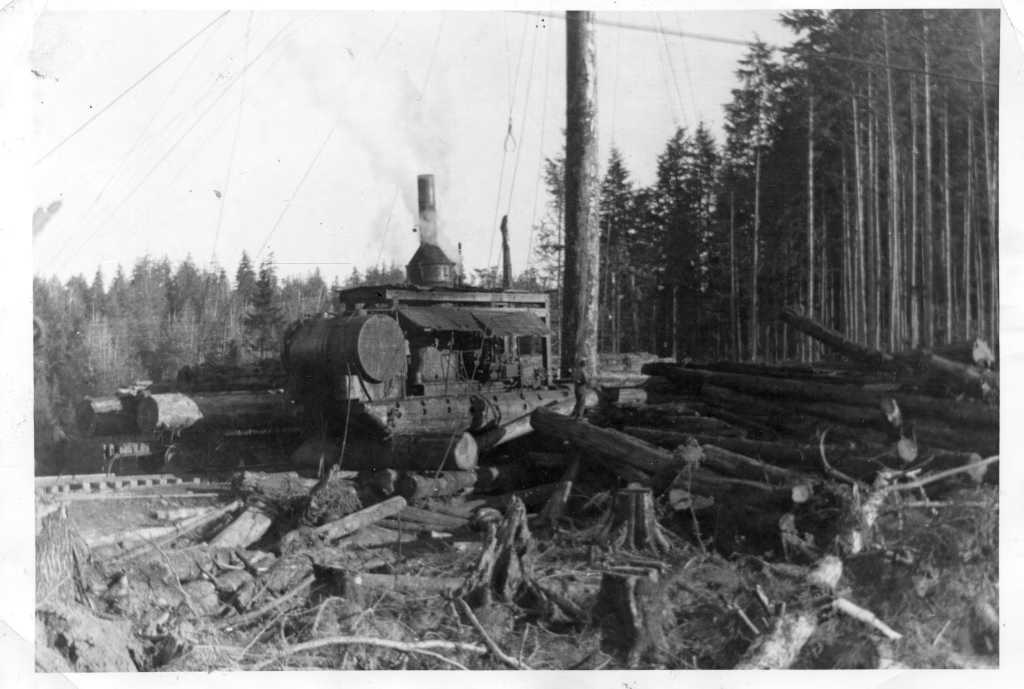Foresters: The Original Environmentalists

It’s a Picnic in the Woods
Being a forester can be a gratifying career; it can take you from the woods in a tiny town in Montana across the United States to the corporate office in Connecticut and many other places in between. Career trajectories may vary, but if you are willing, able, and curious, the ride will be epic. As a forester, you won’t get a picnic in the woods every day, but it is one of the few professions where that opportunity exists.
Foresters are a vital part of the timber industry, serving many diverse roles that require them to be “flexible and nimble.” I heard that phrase constantly growing up with a forester whose experience ranged from planting trees to computer programming. My father, John, had a career spanning over 40 years in forestry. As the daughter of a forester, I grew up with an appreciation of the forest environment and the everyday products from these valuable resources. When I think of the job of a forester, I remember what I learned: Foresters and loggers are the original environmentalists. They are practitioners of art and science who must consider more than just the trees. Foresters work in both the private and public sectors, managing forest lands for a variety of objectives, including wood production, wildlife conservation, fire mitigation, and recreational activities. They have to be aware of habitat, water, soils, and a myriad of other factors that impact their ability to work in the woods and manage the forest.

As a sea-sick sailor who grew up in a commercial fishing family, Dad had to find a different career that fulfilled his desire to be outdoors working. He was first drawn to the profession after taking a forestry class at Grays Harbor Community College and landing a summer timber inventory job with Boise Cascade. Throughout his college career (which spanned six years), he took every opportunity to work in the woods, gaining valuable experience, which included tree planting, timber inventory, and surveying. He worked for timber companies, including Weyerhaeuser and Burlington Northern Timber Division. This valuable on-the-job training, coupled with his college studies, enabled him to obtain his first job in a small rural town of Libby, Montana. Dad was one of 6 college graduates who found full employment upon graduation.

During his time at St. Regis Paper Company, he learned how to work with nature to achieve the desired outcomes on the landscape. He implemented silvicultural systems that fostered natural regeneration, like seed tree cuts, to reforest stands in lieu of tree planting, reducing reforestation costs for his employer. As his career progressed and technology continued to improve, he took on additional responsibilities to learn computer programming, forest inventory management, and forest management planning models. These acquired skills and knowledge opened new chapters in his forestry career. Dad stayed flexible and nimble, making and taking opportunities that presented themselves, and eventually he became the Director of Business Planning for Timberlands at Champion International’s Corporate office in Stamford, CT, a night-and-day difference from starting as a Timber Cruiser for Boise Cascade.

After six mergers and five states later, Dad retired from his position as Regional Manager with Hancock Forest Management in La Grande, OR. His career spanned 40 years and nine federal administrations, encompassing numerous federal and state policy changes, as well as a multitude of forest practices and scientific findings that significantly impacted forest sustainability and the forest industry.
When I asked for his advice for foresters in the industry, he told me a few things:
- Experience trumps grades – get as much experience as possible in the field, including groundwork, timber cruising, tree planting, fire management, forest management, and computer work.
- As your career develops, keep learning and embrace leadership as you gain experience with people management and financial/business management. Eventually, you will become as old as your boss or supervisor.
- Be flexible and nimble – be ready to pivot and change tactics as the industry is very volatile. Transitions are hard, but each one that you go through is an opportunity. Always look and move forward positively.
- Make decisions with 85% of the necessary information – if you wait for 100%, you might miss the forest for the trees.
- Be creative – sometimes you won’t have all the capital you need, so use that opportunity to let the forest work for you.


